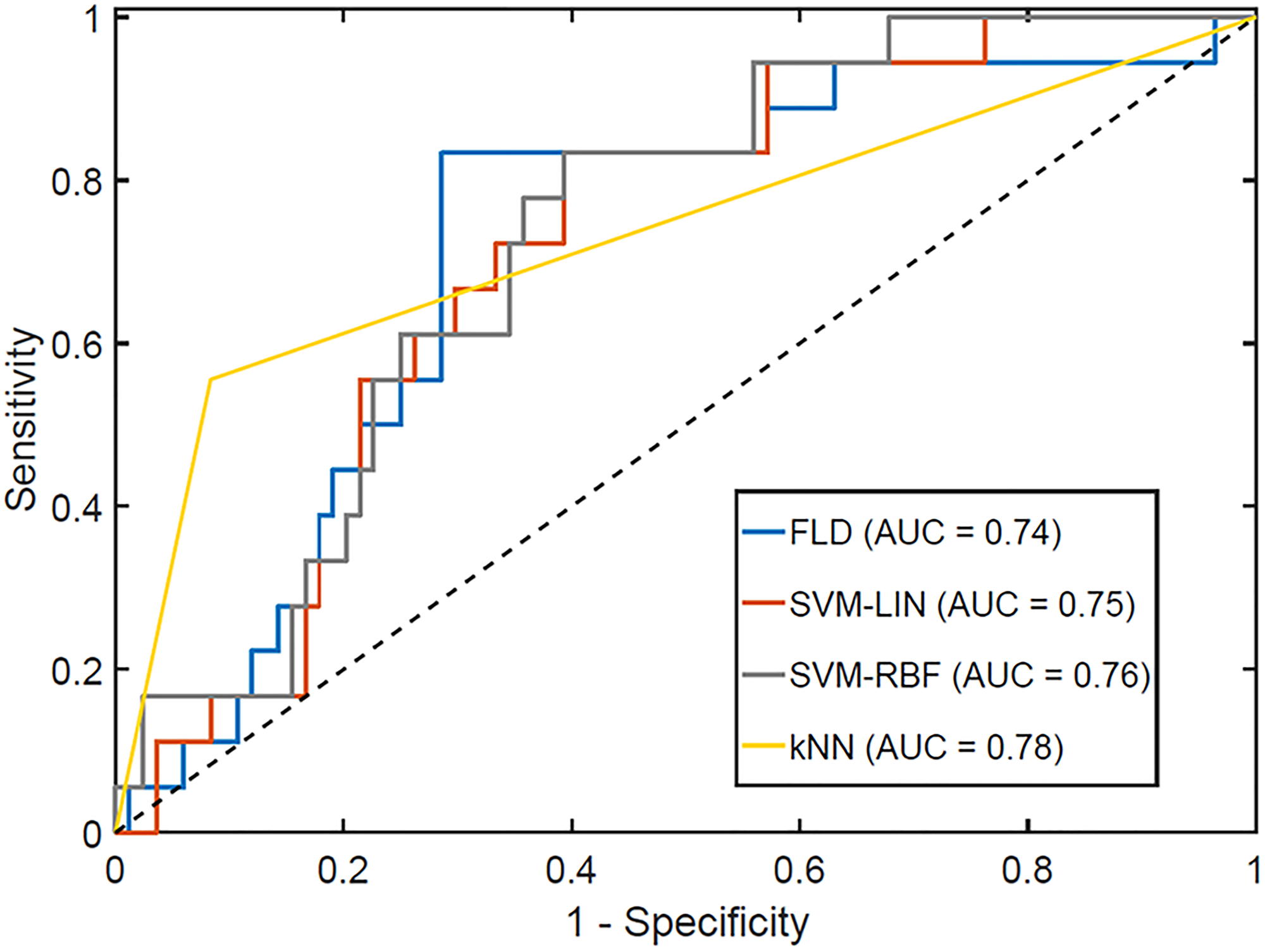Oncotarget published "MRI texture features from tumor core and margin in the prediction of response to neoadjuvant chemotherapy in patients with locally advanced breast cancer" which reported that the authors investigated whether pre-treatment T2-weighted magnetic resonance imaging can be used to predict response to neoadjuvant chemotherapy in breast cancer.
Response assessment was done using clinical-pathological responses with patients classified into binary groups: responders and non-responders.
7 features were significantly different between the two response groups.
The best classification accuracy was obtained using a k-nearest neighbor model with sensitivity, specificity, accuracy, and area under curve of 63, 93, 87, and 0.78, respectively.
Pre-treatment T2-weighted MRI texture features can predict NAC response with reasonable accuracy.
Pre-treatment T2-weighted MRI texture features can predict NAC response with reasonable accuracy.
Dr. Gregory J. Czarnota from The Sunnybrook Health Sciences Centre, The University of Toronto as well as Ryerson University said, "Locally advanced breast cancer (LABC) is defined as breast cancer with tumors greater than 5 cm, primary disease involving the chest wall, skin, or advanced regional lymph node metastasis, without distant metastases"
Pathological response rates are worse, with approximately 20–40% of patients achieving pathological complete response .
It would be helpful to develop imaging biomarkers to identify patients likely to benefit from NAC avoiding ineffective treatments in a selected cohort of patients having chemoresistant disease.
It would be helpful to develop imaging biomarkers to identify patients likely to benefit from NAC avoiding ineffective treatments in a selected cohort of patients having chemoresistant disease.
Radiomic analysis involving a wide range of imaging modalities, including magnetic resonance imaging, quantitative ultrasound, and computed tomography, has shown promising results in the assessment of clinical outcomes for patients with breast cancer.
In T2-weighted breast MRI, the texture of these images has been significantly correlated with pathological heterogeneity such that the texture could hypothetically be used to predict patient prognosis.
The study examined T2 non-contrast images in predicting the treatment response to NAC.
The Czarnota Research Team concluded in their Oncotarget Research Output that one limitation of the current study was the use of different chemotherapy regimens.

Figure 5: Receiver operator characteristics curve for the optimal response classifiers, optimized for maximum F1-Score. The AUCs for each classifier are reported in the legend.
Additional texture features could be extracted from tumors using alternative methods of representation such as grey run-length matrices, grey-level size zone matrices, and first-order features, which will be included in future follow up studies.
They intend to expand the current study cohort to include a higher number of patients to perform more robust validation strategies, including consideration of external validation from a different institution.
In comparison to other studies, these authors had used a different endpoint towards detection of chemotherapy response.
They believe in clinical practice; it will be more prudent to continue NAC in patients demonstrating some or partial response rather than considering a stricter criterion of complete response.
DOI - https://doi.org/10.18632/oncotarget.28002
Full text - https://www.oncotarget.com/article/28002/text/
Correspondence to - Gregory J. Czarnota - [email protected]
Keywords - radiomics, MRI, breast cancer, neoadjuvant chemotherapy, biomarkers
About Oncotarget
Oncotarget is a bi-weekly, peer-reviewed, open access biomedical journal covering research on all aspects of oncology.
To learn more about Oncotarget, please visit https://www.oncotarget.com or connect with:
SoundCloud - https://soundcloud.com/oncotarget
Facebook - https://www.facebook.com/Oncotarget/
Twitter - https://twitter.com/oncotarget
LinkedIn - https://www.linkedin.com/company/oncotarget
Pinterest - https://www.pinterest.com/oncotarget/
Reddit - https://www.reddit.com/user/Oncotarget/
Oncotarget is published by Impact Journals, LLC please visit https://www.ImpactJournals.com or connect with @ImpactJrnls
Media Contact
[email protected]
18009220957x105



